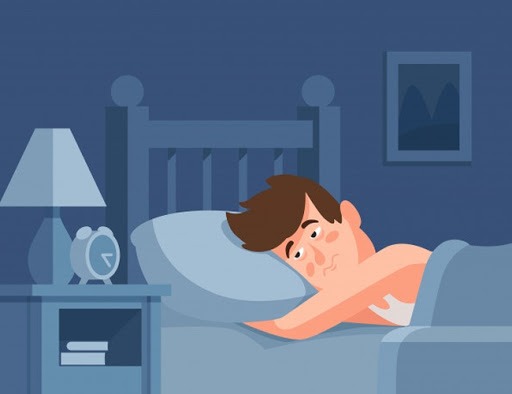Insomnia

Insomnia is a common sleep disorder that makes it hard for a person to fall asleep, stay asleep or causes them to wake up too early. Insomnia can be short term, lasting from a night to a few weeks or long term, with no sleep for 3 nights a week for a few months or more.
There are two types of insomnia. In the first type, known as primary insomnia, there is no underlying health condition for the patient’s sleep problems. This is caused by environmental factors such as noise, light or temperature, certain stress inducing life events such as death of a family member, loss of job divorce etc.
On the other hand, secondary insomnia means that the person has difficulty sleeping due to certain health conditions such as asthma, depression, cancer, arthritis etc. Some of the causes of secondary insomnia include:
- Depression or anxiety
- Pain resulting from cancer or arthritis
- Certain medications used for high blood pressure, asthma, allergies
- Excessive use of caffeine, tobacco or alcohol
- Endocrine disorders such as hypothyroidism
- Sleep disorders such as restless leg syndrome or sleep apnea
What puts you at risk of insomnia?
Almost everyone has an occasional sleepless or restless night. But, the risk of insomnia is higher due to certain factors such as :
- Severe stress
- Hormonal shifts during menstrual cycle & pregnancy
- Mental health issues
- Frequently changing shifts at work
Can insomnia be prevented?
Maintaining a good sleep hygiene can help prevent insomnia. Here are some tips:
- Have a sleep routine. Get to bed at the same time each night.
- Try to avoid naps during the day
- Avoid using phone prior to bed
- Avoid alcohol
- Exercise everyday
- Make your bedroom dark & quiet
How is insomnia treated?
Simple lifestyle changes such as changing sleep habits & managing stress can help restore sleep for most people. However, if these do not work, your psychotherapist may recommend one or more of the following treatment methods:
- Cognitive behavioural therapy
- Stimulus control therapy
- Relaxation techniques
- Light therapy
- Pharmacotherapy: Use of certain medications to help a person fall asleep or stay asleep or both
- Alternative therapies such as yoga or meditation
Why Dr. Meghna?
Dr. Meghna is an expert psychotherapist and has experience in successfully treating various sleeping disorders including insomnia. She designs a customised treatment plan to help address your specific needs & achieve your goal.